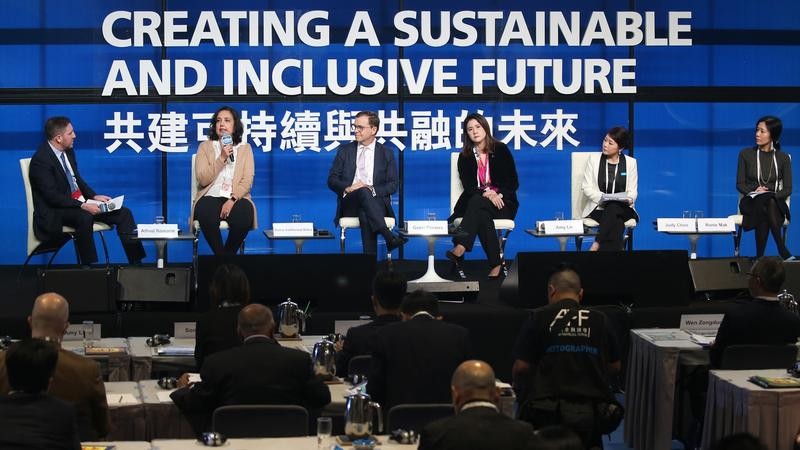2019-01-16
Oswald Chan

HONG KONG - With global trade troubled by lingering uncertainties, the special administrative region will staunchly support free trade, defend the multilateral trading system and help build bridges for different trading blocs, Secretary for Commerce and Economic Development Edward Yau Tang-wah pledged on Tuesday. “The trade war benefits no one and so, we’ll support free trade and defend the multilateral trading system,” he told a breakfast panel discussion entitled “Hong Kong’s Role in the Changing Multilateral Trade Landscape” on the second day of the 2019 Asian Financial Forum, jointly organized by the Hong Kong SAR Government and the Hong Kong Trade Development Council. “We’ll also find ways to build bridges with other trading partners as we have concluded or signed new trade arrangements. We’re building a better environment for businesses,” said Yau. “Uncertainties in the China-US relationship will likely persist in the foreseeable future. These tensions and uncertainties would potentially impact global growth, disrupt trade corridors, and realign and redistribute global supply chains,” asserted Laurence Li Lu-jen, panel moderator and chairman of the Financial Services Development Council -- the government’s top-level advisory body to promote the city’s financial services industry. China and the US have begun three months of talks -- from December last year to the end of next month -- on thorny structural issues, such as intellectual property protection, technology transfers and reducing the US trade deficit with China. If no agreement is reached by March 1 this year, the US has warned it will raise its 10 percent tariffs on US$200 billion worth of Chinese imports to 25 percent. As at November last year, the HKSAR has signed nine free trade arrangements with the 10-member Association of Southeast Asian Nations, Georgia, the Macao SAR, Australia and the Maldives. “Through FTAs, we’re assuring the market, creating certainty in the unpredictable environment and encouraging international businesses to use Hong Kong as the platform to promote global trade,” Yau added. Victor Fung Kwok-king, group chairman of Fung Group, said the global supply chain adjustment, due to trade corridor rearrangements and trade pattern changes, is not unfamiliar to Hong Kong. “The situation is like when the Chinese mainland is opening up its economy that is affecting global supply chains. Hong Kong is redefining its role to accommodate to the new pattern of trade flows,” he said. The Belt and Road Initiative can further create new opportunities for Hong Kong businesses, according to Fung, when the Chinese mainland’s small and medium-sized enterprises may mass relocate their supply chain networks to various countries along the BRI route. According to the World Trade Organization, Hong Kong was the world’s seventh-largest merchandise trade exporter in 2017. John Slosar, chairman of the Hong Kong-United States Business Council (Hong Kong Section), said Hong Kong enterprises can still employ their nimbleness amid the new environment in international trade. “Although the global trade spat leads to diversification of supply chains, the process, however, takes time so that Hong Kong businesses can adapt to the new situation just like when manufacturers were relocating their supply chains outside the Pearl River Delta region in the last decade,” said Slosar, who is also chairman of Hong Kong’s flagship carrier Cathay Pacific Airways. Hong Kong International Airport has been ranked the world’s busiest airport for international cargos since 2011. The city was also ranked fifth globally in terms of container throughput in 2017. The change in consumption and trade corridors driven by the rise of the middle class on the Chinese mainland, emerging markets, global asset redenomination and the mainland’s capital account opening will reshape the international trade environment, panelists reckoned. Benjamin Hung Pi-cheng, Greater China and North Asia regional chief executive officer at Standard Chartered Bank, said Hong Kong can also play a role in facilitating investment flows into and out of the Chinese mainland.